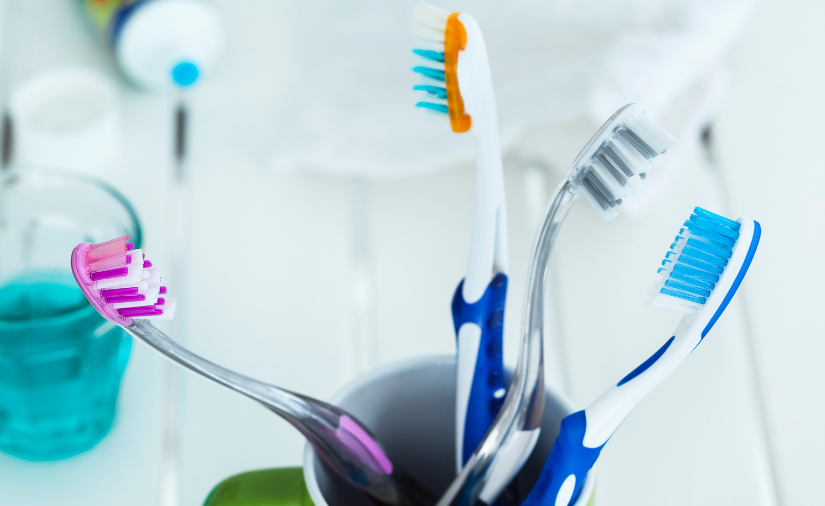By: Dr. Elizabeth Eggert
Maybe you’ve heard this clever little saying: You don’t have to brush all of your teeth. Only the ones you want to keep. While that is true in a great sense – the powerful effects of brushing cannot be underestimated – it doesn’t address the heart of the matter: There is a difference between proper and improper brushing. At Eggert Family Dentistry, we educate our patients on this difference and encourage good brushing habits while helping you break the bad ones! Here are some bad habits to break when brushing your teeth that can ultimately cause more harm than good.
Using a brush with hard bristles
Hard bristle brushes can irritate gums and cause them to recede, exposing roots and inducing sensitivity. They can also wear away enamel. When you buy your next brush, opt for a “soft” brush as opposed to a “medium” or “hard” one.
Using the wrong size brush
Brush heads come in a variety of sizes. If you have a smaller mouth and are brushing with a larger brush, you may not be able to brush the plaque out of the recesses of your mouth. When plaque builds up, cavities form and gum disease can set in. Make sure your toothbrush is proportional to your mouth. Sometimes a smaller brush head can help you get into the “nooks and crannies” a little better.
Brushing right after eating
Brushing after eating is a good thing, right? Keep in mind that acidic foods and beverages can soften enamel. If you brush softened enamel it can cause accelerated wear and tear on your teeth. It is best to wait until your saliva has had a chance to neutralize the pH in your mouth before you bust out the toothbrush. Usually an hour or so will do it. Then brush away!
Storing your toothbrush in a closed container
When you’re done brushing, where do you store your toothbrush? If you put it in a travel toothbrush case or other enclosed container, you might think you’re protecting it from germs. In reality however, when your toothbrush doesn’t get a chance to dry out, bacteria and mildew can form on the bristles. Store your toothbrush in a way that’s open to the air so it can dry out between uses.
Brushing too hard
Hard brushing, like brushing with a stiff-bristled toothbrush, can cause gums to prematurely recede, exposing roots and causing tooth sensitivity. Soft but thorough brushing is the secret to clean and healthy teeth and gums. “Small circular motions at the gumline…” these should be familiar instructions from your recare visits with us.
Using an old toothbrush
Worn bristles don’t clean as thoroughly. Are your bristles frayed or splayed? Swapping out your toothbrush every 3-4 months will help you get the best cleaning each time you brush.
Not brushing long enough
Many of us rush brushing so we can get out the door for work or get to bed. The ADA, however, recommends brushing for two minutes every time you brush. An easy way to keep track is to keep a timer on the bathroom counter and set it each time. Or you can play a song while you brush. Most songs last between two and three minutes and listening to one can definitely help time pass more quickly.
Not brushing the gum line
When brushing your teeth, don’t neglect your gum line. This is a place where food settles and bacteria can easily form. Ward off gum disease by placing your toothbrush at a 45° angle against your gums and brushing each tooth 15 to 20 times in that circular pattern we talked about earlier.
Eggert Family Dentistry wants you to get the most out of your daily brushing. Have you ever considered switching to an electric toothbrush? Check out our video here to learn more! If you have additional brushing questions, don’t hesitate to ask one of our fabulous hygienists at your next recare visit. Joanna, Lea, Shelly, and Cassie are here to help you! Read more about our hygienists here!
